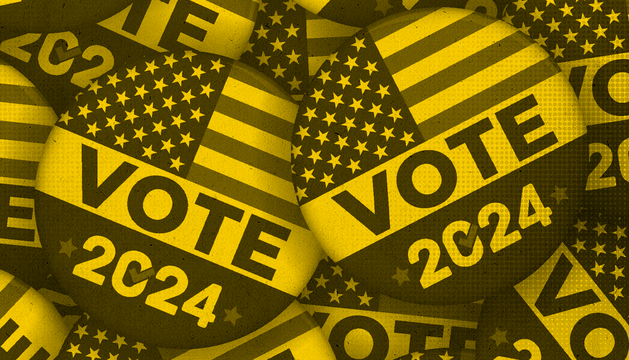Pennsylvania: Limits on Voter Eligibility Challenges
This resource details state and federal laws that guard voters against unfounded challenges to their eligibility.
Part of
Pennsylvania, like most states, allows private individuals to challenge another person’s eligibility to vote. This resource details state and federal laws that govern this process and protect challenged voters. Pennsylvania’s voter protections include a requirement that pre-election challenges be made by sworn affidavit, a prohibition on Election Day challenges made on any grounds other than identity or residency, and a right to a noticed and recorded hearing for absentee and mail-in ballot challenges.
Pre-election challenges to a voter’s registration must be made by written affidavit.
- Only a commissioner, registrar or clerk, or another voter from the same municipality may challenge a voter’s registration. 1
- The challenge must be made on a challenge affidavit form that states the reason for the challenge. 2A challenger who lies on the challenge affidavit may be charged with a criminal offense. 3
- A challenged voter must be given the opportunity to respond and should do so in a sworn or affirmed written statement with any supporting evidence attached. 4
- The National Voter Registration Act limits when and how voters can be removed from the rolls.
- Under the act, states and counties are permitted to remove a voter in just five circumstances: if the voter affirms the change; if state law requires, for a criminal conviction or mental incapacity; for the death of the voter; if the voter confirms a change of residence in writing; and based on other evidence of a change of residence, but only after the state sends a notice and the voter both fails to respond and fails to vote in the next two federal general elections. These restrictions apply regardless of whether clerks are conducting their own list maintenance or responding to challenges.
- The act also prohibits the “systematic” removal of voters within 90 days of a federal election. According to guidance from the U.S. Department of Justice, “This 90-day deadline applies to State list maintenance verification activities such as general mailings and door-to-door canvasses. This deadline also applies to list maintenance programs based on third-party challenges derived from any large, computerized data-matching process.”5
Pennsylvania limits the grounds for Election Day challenges.
- Only a registered voter, election officer, overseer, or poll watcher may challenge a voter on Election Day.
- The only permissible grounds for an Election Day challenge are that the voter is impersonating the registrant, that they are not a resident, or that they’ve been bribed. 6A voter’s eligibility to register to vote is not a permissible challenge at the polls. 7
- Challenges must be directed to the judges of elections, who will determine if the challenge was made in good faith and based on actual evidence that the challenged person is not qualified to vote. 8
- “A person is presumed to be a bona fide qualified elector and must be allowed to vote if his or her name appears on the poll book.”9
- The judge of elections must “impartially and faithfully perform [his or her] duties,” as required by the oath taken before each election. 10Judges of elections are prohibited from allowing “routine or frivolous challenges that are not supported by a stated good faith basis and evidence that a person is or may not be eligible.”11
- If the judge of elections is satisfied as to the identity and residency of the voter, the voter may vote a regular ballot. 12
- If the judge of elections cannot determine the residency or identity of the voter, the voter shall be permitted to bring another voter from the precinct to sign an affidavit vouching for the voter’s identity or residence. 13The voter then has the right to vote a regular ballot. 14A challenged voter who cannot procure a witness to vouch for them must be allowed to vote a provisional ballot. 15
A formal hearing and deposit are required for challenges to absentee and mail-in ballot voters.
- Individuals must deposit $10 per challenge to an absentee or mail-in ballot voter16and may only challenge their vote on the basis of eligibility. 17These challenges, and any challenge to a provisional ballot, are subject to a noticed and recorded hearing. 18
Authorized representatives designated by candidates or political parties may not challenge absentee or mail-in ballots during the pre-canvass or canvass period and may only challenge a provisional ballot on the basis of residency. 19
• • •
Voters in Pennsylvania have the right to vote free from intimidation under federal and state law. Baseless challenges to a voter’s eligibility can harass and intimidate the voter being challenged, as well as other voters waiting to vote at the polls. More information on the federal and state laws that protect Pennsylvania voters from intimidation can be found here.
Alice Clapman and Allison Anderman, written and published in partnership with All Voting is Local, with special thanks to Jenner & Block LLP
Endnotes
-
1
25 Pa. Stat. § 1329.
-
2
Id.
-
3
18 Pa. Stat § 4904.
-
4
25 Pa. Stat. § 1329(c).
-
5
U.S. Department of Justice, Voter Registration List Maintenance: Guidance under Section 8 of the National Voter Registration Act, 52 U.S. § 20507, September 2024, 4, https://perma.cc/H6MR-AVC3 .
-
6
25 Pa. Stat. §§ 3050(d), 3051; Pennsylvania Department of State, Guidance on Rules in Effect at the Polling Place on Election Day, April 2025, 7–8,https://perma.cc/7CKT-K7HJ .
-
7
Pennsylvania Department of State, Guidance on Rules in Effect at the Polling Place on Election Day, April 2025, 7.
-
8
Pennsylvania Department of State, Guidance Concerning Poll Watchers and Authorized Representatives, September 22, 2025, 5, https://perma.cc/R57M-DFRD.
-
9
Pennsylvania Department of State, Guidance on Rules in Effect at the Polling Place on Election Day, April 2025, 7.
-
10
25 Pa. Stat. § 2677.
-
11
Pennsylvania Department of State, Guidance Concerning Poll Watchers and Authorized Representatives, 5.
-
12
Pennsylvania Department of State, Guidance on Rules in Effect at the Polling Place on Election Day, April 2025, 2.
-
13
Id.
-
14
Id.
-
15
52 U.S.C. § 21082(a); 25 Pa. Stat. § 3050(a.2); Pennsylvania Department of State, Guidance on Rules in Effect at the Polling Place on Election Day, April 2025, 8.
-
16
25 Pa. Stat. § 3146.8(f).
-
17
25 Pa. Stat. §§ 3146.2b(a), 3150.12b(a)(2).
-
18
25 Pa. Stat. § 3146.8(g)(5) (Absentee and mail-in ballots); 25 Pa. Stat. § 3050(a.4)(4) (Provisional ballots).
-
19
Pennsylvania Department of State, Guidance Concerning Poll Watchers and Authorized Representatives, 6–7; 25 Pa. Stat. § 3050(a.4)(4).
More from the Limits on Voter Eligibility Challenges series
-
Texas: Limits on Voter Eligibility Challenges
This resource details state and federal laws that guard voters against unfounded challenges to their eligibility. -
Virginia: Limits on Voter Eligibility Challenges
This resource details state and federal laws that guard voters against unfounded challenges to their eligibility. -
Wisconsin: Limits on Voter Eligibility Challenges
This resource details state and federal laws that guard voters against unfounded challenges to their eligibility.

